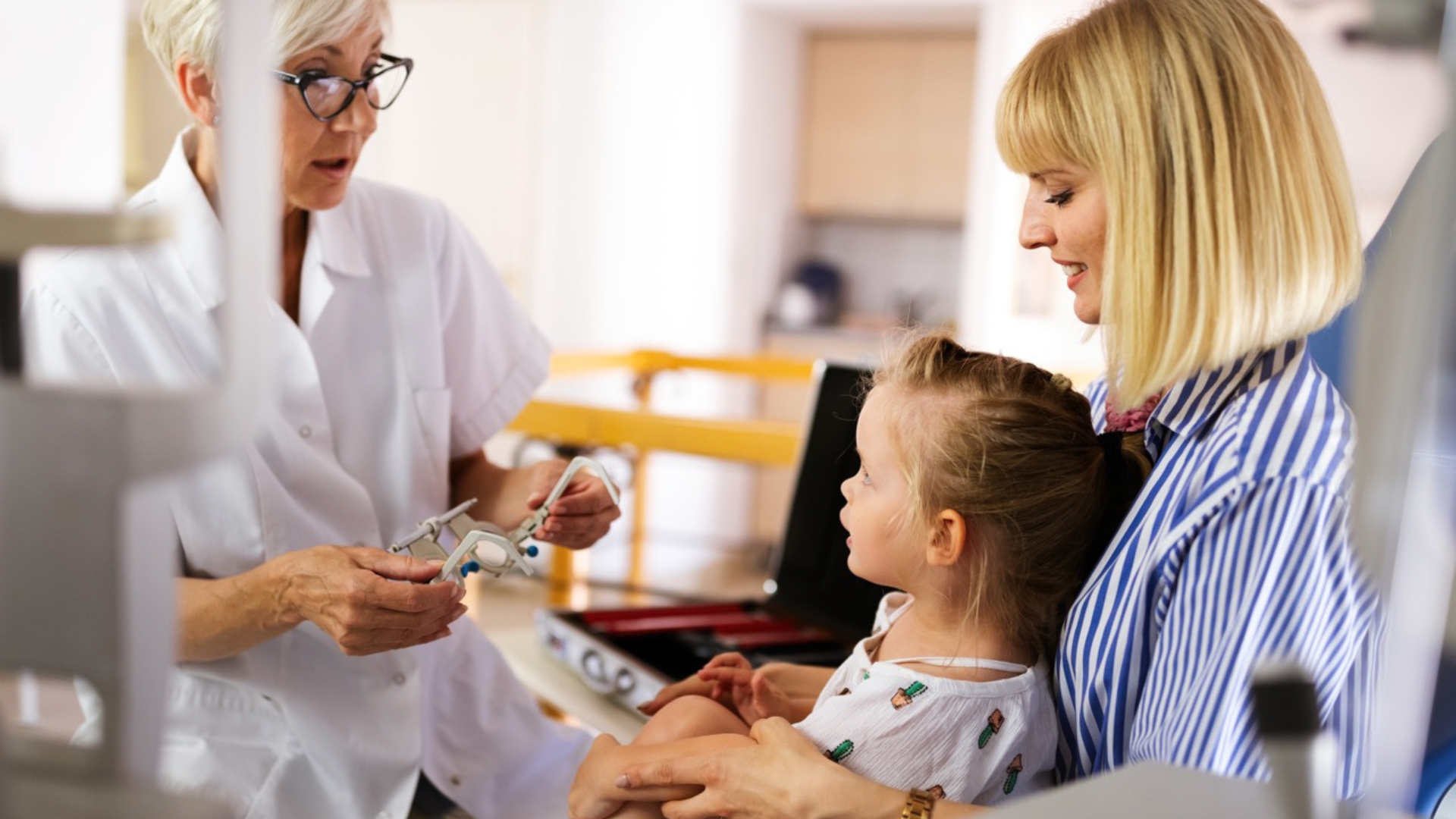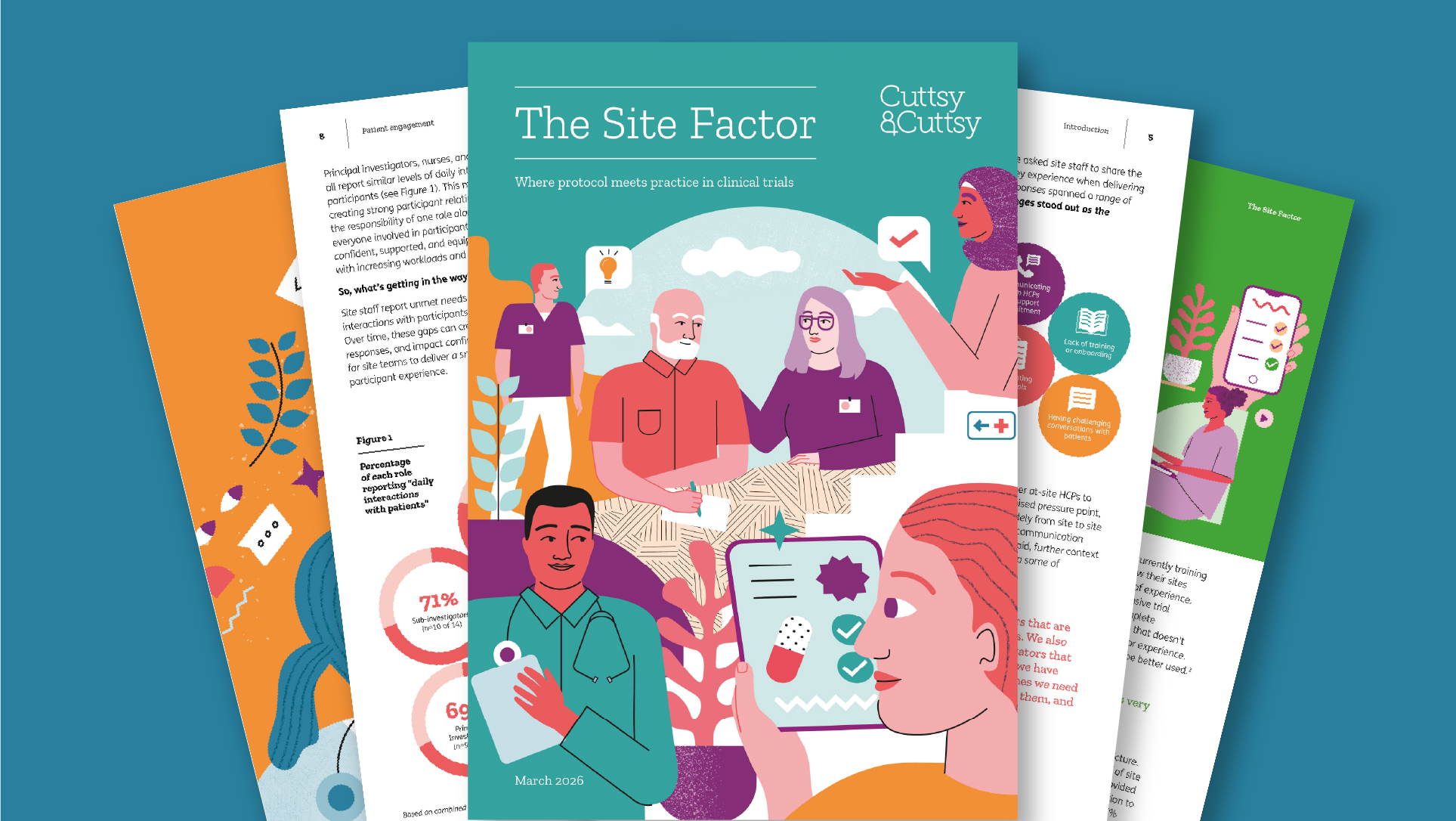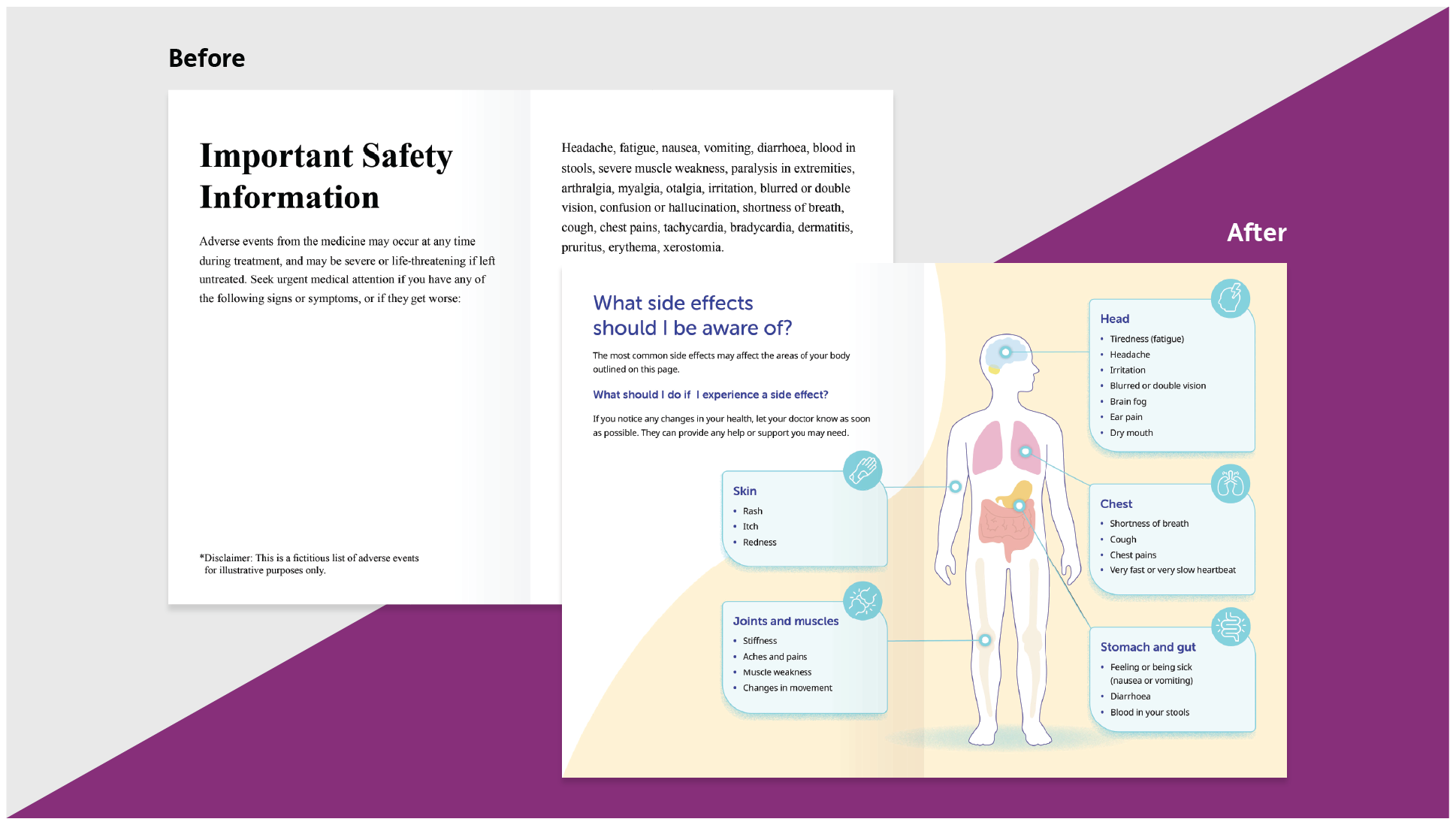Clarity in clinical trials

Navigating the labyrinth of misconceptions and misinformation surrounding clinical trials, particularly in the wake of the pandemic, calls for more than facts. A clear, honest, and empathetic approach is needed to cut through the fog. It’s all about transparent and thoughtful communication for meaningful engagement. That’s when patients move beyond simply being recipients of information and instead become active partners in their journey towards understanding. Inspiring belief in the integrity of clinical trials, encouraging engagement right the way through.
But how?
Let’s shed some light on the matter.
Clinical trial talk can be complicated
No doubt about it, clinical trial information is complex.
The words, terms and definitions that have become second nature to those of us in the industry can be a little bewildering to everyone else.
The quantity of information surrounding each trial is also vast.
Details come at patients thick and fast, each more puzzling than the last. What’s more, patients who are eligible to enter a clinical trial may not be in a good frame of mind for taking in new information. After all, there’s a reason they may be considering joining a trial in the first place.
So perhaps it’s no surprise patients find themselves overwhelmed.
But as we know, it doesn’t have to be this way.
Patient centricity always wins
When we think about clinical trial support, putting patients first is the winning approach. By focusing on their safety and comfort, and supporting them to understand each step, we set clinical trials up for success. Tailoring content and support to each patient’s specific needs, preferences, and values, makes them feel heard and understood. Empowering patients to take an active role right throughout the trial process.1
What’s more, if we take this a step further and ask patients for feedback, we continuously improve the overall clinical trial experience. Making voices heard, helping people feel at the very centre of their care.
How can health literacy principles help?
A term we’ve all heard before, of course. But what can health literacy really do for clinical trials?
The National Health Literacy plan defines it as “People having enough knowledge, understanding, skills and confidence to use health information, to be active partners in their care, and to navigate health and social care systems”.2
At its core lies the idea that knowledge is power. Because when patients can obtain, understand, and apply information to make health-related decisions, they’re an empowered patient.
So, what can health literacy bring to the table when it comes to clinical trial support?
- Enhanced informed consent process: Using clear language in consent forms eases confusion and empowers patients to ask relevant questions about the trial1
- Improved participant engagement: When information is presented clearly and concisely, people feel more confident and comfortable about participating
- Reduced misconceptions and fears: Access to accurate information about trial procedures and safety protocols makes it less likely for patients to be swayed by misinformation3
- Enhanced trust and credibility: Prioritising clear communication and ethical practices shows a commitment to transparency, boosting trust not only in trials, but in the credibility of the pharma industry as a whole4
- Tailored communication for diverse populations: Customising trial materials to meet the unique needs of diverse populations, for example, by localising materials, promotes inclusivity and accessibility for all5
- Continued engagement beyond recruitment: By maintaining clear and consistent messaging, researchers can keep participants informed about study progress, results, and potential follow-up opportunities, helping provide ongoing support6
It’s about partnerships too
Standing alongside communicating to patients, we all know how vital it is for us to collaborate closely with healthcare providers. These professionals are ultimately the trusted voices guiding patients through their healthcare journeys. They’re the ones who explain the ins and outs of trials, address concerns, and highlight the potential benefits of participation. And so, we have a real obligation for our support efforts to extend to them too, making sure they have the knowledge, resources, and tools to confidently walk their patients through what they can expect in a clinical trial.7
But it doesn’t stop there.
We should also look to partner with community organisations, advocacy groups, and local leaders. We know they’re the ones who are instrumental in delivering accurate health information, especially within diverse communities. By making these connections, we not only reach a wider audience, but also address specific concerns and cultural nuances. Helping us listen to community feedback so we can tailor messages effectively, building trust and dispelling misconceptions.6
Technology also plays a vital role.
Digital health tools like telehealth and patient engagement platforms offer patients real-time, reliable information about trials. Helping address common questions and concerns. You might remember, we’ve talked about this before, here. Tools like a well-designed website can also serve as a go-to resource, handing over accurate information, whenever patients need it.8
As an industry, we are committed to safety and ethics in all aspects of what we do and it’s no different in clinical trials. So, we should tell people about it. Perhaps this involves showcasing successful examples of how a trial has led to a treatment that improves patient outcomes. It’s about giving a little context to our ethical practices. And this has been shown to work well — Pfizer’s policy paper also explains how transparency helps build trust amongst participants, healthcare professionals, and pharma companies, alike. Ultimately, it’s about making sure everyone understands our shared commitment to improving patient outcomes through responsible clinical trials.9
Empowering patients, enhancing engagement
Thoughtfully threading through these strategies and giving health literacy and patient centricity the spotlight in clinical trial support isn’t just a good idea — it’s crucial. By championing transparency and making sure participants fully grasp what to expect, we’re paving the way for more people to seriously consider joining our trials. When we prioritise clear communication and accessibility, we break down barriers to recruitment and make sure clinical research benefits from a diverse and well-informed participant pool.
All of which could help us make a positive difference to as many lives as possible.
References
- Kadam RA. Perspect Clin Res. 2017;8(3):107–112.
- The Health Literacy Place. Why Health Literacy? Available here. Accessed May 2024.
- Silva MJ and Santos P. Int J Environ Res Public Health. 2021;18(10):5421.
- Pharma Exec.com The importance of responsible and transparent communications in pharma marketing. Available here. Accessed May 2024.
- Cunningham-Erves J et al. BMC Medical Research Methodology. 2022;22:248.
- Knudsen J et al. NEJM Catal Innov Care Deliv. 2023. doi:10.1056/CAT.22.0198.
- Skovlund PC et al. Journal of Patient-Reported Outcomes. 2020. doi: 10.1186/s41687-020-0174-6.
- Paul J, Seib R and Prescott T. J Med Internet Res. 2005;7(1):e5.
- Pfizer. Transparency in Clinical Trials. Available here. Accessed May 2024.












